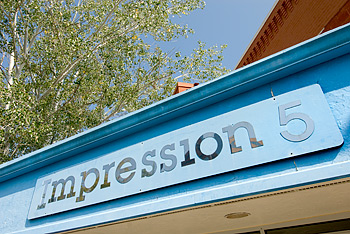At the recent Nano Day at downtown Lansing's Impression 5 Science Center, Michigan State University (MSU) engineering prof Simon Davies appeared to be having as much fun as the kids as she showed how a ceramic tube can filter water without getting clogged.
 And while the science was presented in an entertaining way—right alongside Tom Deits of Lansing Community College, who was letting kids pour water on his nano-impregnanted "Dr. Nano" waterproof shirt, and a lighted periodic table of the elements, it is rooted in serious stuff.
And while the science was presented in an entertaining way—right alongside Tom Deits of Lansing Community College, who was letting kids pour water on his nano-impregnanted "Dr. Nano" waterproof shirt, and a lighted periodic table of the elements, it is rooted in serious stuff.
Davies’ filter work is funded by a $1.44 million National Science Foundation grant.
Water filters tend to get clogged, he explains. He recalls in the 1980’s when 400,000 people in Milwaukee got sick with cryptosporidium because the water filters clogged and the treatment plant failed. More than 100 people died, and the economic cost was enormous. Scientists began then looking at different filter technologies.
Most large cities, such as Detroit, take their drinking water from surface pools, such as the Great Lakes, and the water must be cleaned. (The Capital region’s drinking water comes from underground aquifers.)
Davies, and his team led by Susan Masten, set out to develop a filter that would not clog and would last longer than those previously used. They use surface water from Lake Lansing for their experiments.
Their filter is self-cleaning, using ozone to make an oxidant which also kills bacteria and viruses. Ozone can be made on site, using oxygen and electricity. That capability broadens the filter’s applications for the military, for example, because no chemicals have to be carried.
A patent is pending for the filter, which Davies expects will lead to a spin off company.
Source: Simon Davies, Ph.D., Civil and Environmental Engineering, MSU
Gretchen Cochran, Innovation & Jobs editor, may be reached here.
All Photographs © Dave Trumpie
Enjoy this story?
Sign up for free solutions-based reporting in your inbox each week.